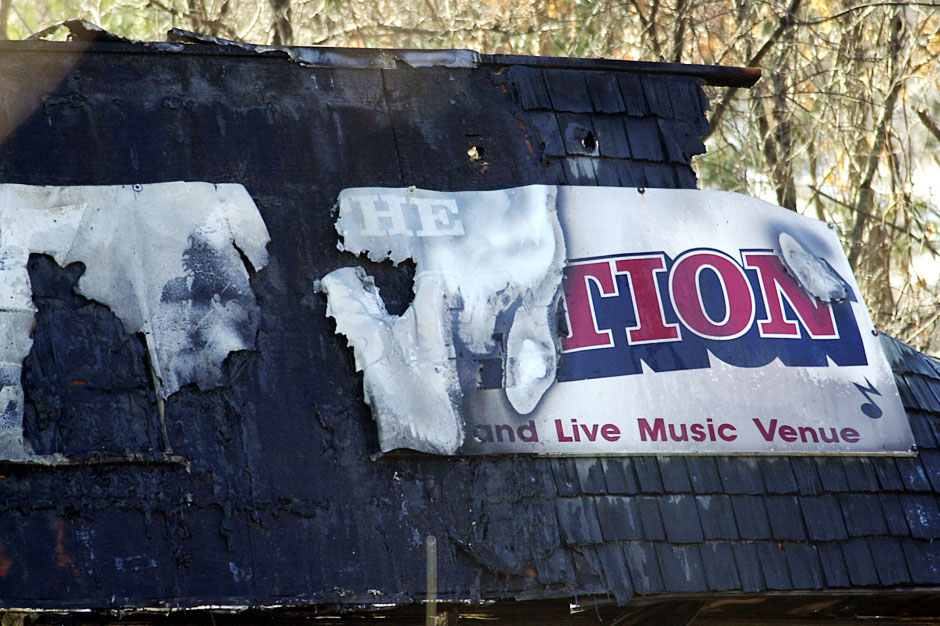Just after 11 p.m. on February 20, 2003, the venerable hair-metal band Great White ripped into “Desert Moon,” the opening song of a set that attempted to bring back the glory of their late-’80s heyday, if only for one night. Despite not having released a major-label album since 1992, the band packed 462 fans into the Station, a nightclub in West Warwick, Rhode Island, with a stated capacity of only 404. Seconds into the performance, Daniel Biechele, the band’s tour manager, ignited a set of fireworks that shot three streams of sparks into the air. Less than 20 seconds later, the sparks hit two layers of flammable soundproof foam lining the ceiling of the club, igniting a blaze. For at least the next 10 seconds, the band was unaware of what exactly had been set in motion, and many in the crowd assumed that the fire was merely part of the show.
That short burst of obliviousness would soon come to an end. About 40 seconds after the sparks had been set off, Great White singer Jack Russell noticed the raging fire and uttered these words into his mic: “Wow… this ain’t good.” The band quickly evacuated the stage as it began to be swallowed in flames. Some members of the crowd started to push their way out of the club, though many were still unaware of the severity of the situation. Fifty seconds after the ignition of the fireworks, The Station’s fire alarm started blaring. Twenty seconds after that, the club was consumed by smoke. Five minutes later, the club was completely ablaze, with foot-tall flames spitting out of busted windows.
One hundred people died in the aftermath of the fire and another 230 were injured. Blame would not be spared. Biechele plead guilty to 100 counts of involuntary manslaughter — he was sentenced to 15 years with 11 suspended, served two and was released from prison on March 19, 2008. Michael and Jeffery Derderian — brothers and owners of the Station — were also be sentenced. Each pleaded no contest to 100 counts of involuntary manslaughter — Michael received four years in prison (he would serve less than three) and Jeffery was given a suspended sentence and 500 hours of community service. Denis P. Larocque — West Warwick’s chief fire inspector at the time, who had passed the club on inspection multiple times in the years preceding the fire, despite the presence of flammable foam — was not charged, but remains a pariah amongst the victims’ families.
Lawsuits and settlements cast an even wider net. WPRI-TV in Providence settled with the victims’ families for $30 million — a cameraman named Brian Butler who worked for the Station had been accused of blocking crowd members as they attempted to flee through the front door. Sealed Air Company, which manufactured the foam used to soundproof the club, agreed to pay $25 million. Several other foam companies paid out a total of $30 million. Clear Channel, promoters of the show, paid out $22 million. Anheuser-Busch and a beer distribution firm named McLaughlin & Moran — two other promoters — settled for a combined $21 million. Home Depot, a pyrotechnics company, the band, and the club’s owners would all also settle. In total, $176 million was put into a trust for victims and families.

Also Read
Compact Discs: Sound of the Future
In the decade since the Station fire, the United States has avoided a club tragedy at such a tragic level. But similarly lax oversight and corner-cutting has led to a number of comparable tragedies overseas, and the dynamics of the increasingly popular outdoor festival scene have also led to a number of deaths.




